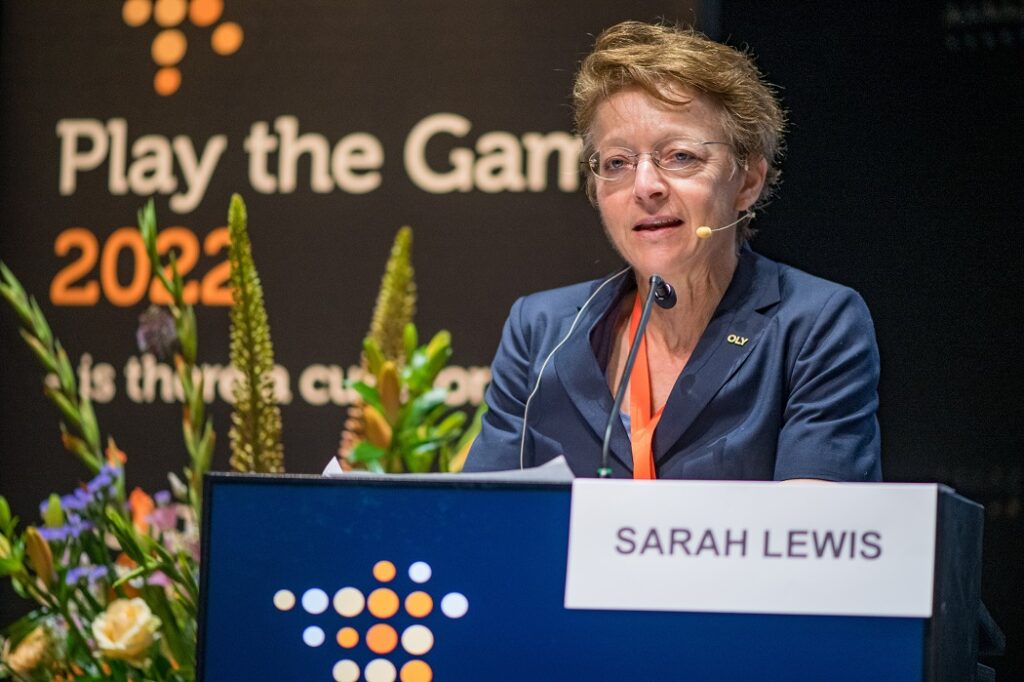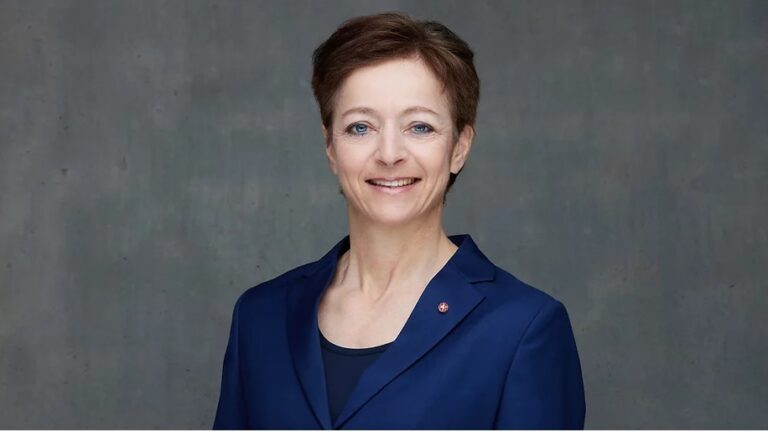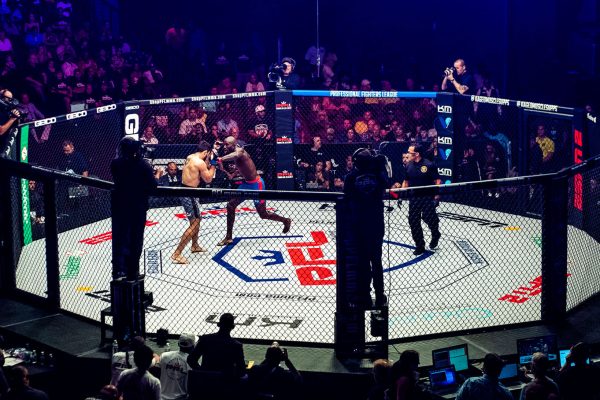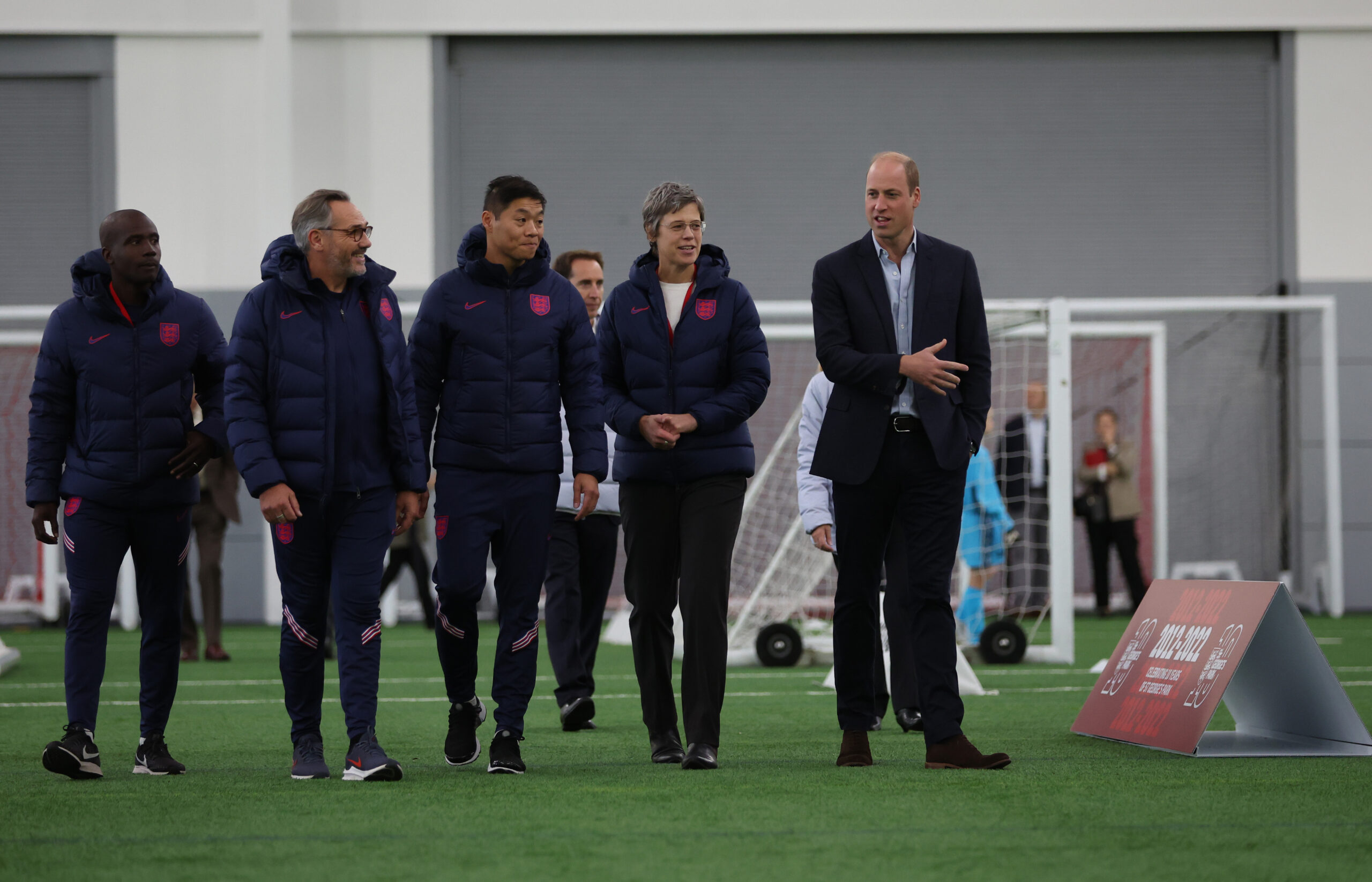Sarah Lewis, a former British Olympian Alpine Skier is a formidable force within the sports governance realm. She has been involved with international skiing on both a competitive and administrative level for over 30 years, starting as a member of the British Alpine Ski Team from 1982-1988, competing in the 1987 FIS Alpine World Ski Championships and Calgary 1988 Olympic Winter Games. She was appointed Officer of the Order of the British Empire (OBE) for her services to sport by Her Majesty The Queen in the New Year Honours List for 2018. She has recently founded her own agency ConsultanSki. The Playknox spoke with her to know more.
Ms. Lewis, what have you been working on recently?
It’s been a full-on few months after I concluded working as senior advisor for the Chinese Winter Sports Association in April, contributing to their preparations and successful participation at the Beijing Olympic Winter Games at which China achieved historical results in finishing 3rd in the medals standings, with a record number of medals in the snow sport disciplines and events.
I’ve enjoyed a 25-year career working in leadership positions at the leading international winter sports federation, FIS, 22 of which as Secretary General and Director, and in non-executive roles in IOC and Major Event Organising Committee Commissions. Now, I’m implementing my skills across a wide range of activities to serve sport, business and society at large through my own consultancy, Sarah Lewis Global Sports Leader GmbH which I launched three months ago. My focus is on providing global advisory and leadership services, project management, communication strategy, governance policies with services including advisory roles and mentoring for individuals, groups and/or together with in-house executive teams and non-executive boards.
Over the past weeks I’ve participated at a number of Sports Governance, Business and Event conferences contributing as a panellist and as a moderator, alongside learning and further developing my knowledge and network. I’ve been one of the judges of the Leaders In Sport Awards 2022 with the winners announced at Leaders Sports Week London 2022 on 27th September, and I’ve been posting a summary of various activities on my Blog | sarah-lewis.com with some links. In addition, I’m consulting for a number of companies in Sport notably around Governance matters including Safeguarding, Anti-Corruption, DEI: Diversity, Equality and Inclusion. I’m delivering modules and advising Executive Education providing specialist sessions and mentoring, and this is a topic that’s very meaningful to me as Sport at all levels provides an Education for so many life qualities, and life is a continual learning journey. Through the insight into emerging technologies serving as the Lead Mentor of the first ever Winter Sports Global Innovations Accelerator for 18 months, I’ve invested in award-winning start-ups, OnePlan Events and Recast. Alongside I’ve been invited to act as Non-Executive Director for a proposed investment company in sport. On a pro-bono basis I mentoring women to run for leadership roles and supporting their campaigns. Your readers can follow me through my LinkedIn posts
You were Secretary General of FIS for 20 years. From an Olympian to administration, what has the journey been like?
I am an Olympian (OLY), having represented Great Britain at the Calgary 1988 Games in Alpine Skiing before embarking on a career in sports administration, initially within the ski industry and media before working for the national and international governing bodies. Back in the 1980’s there weren’t any opportunities to study online alongside a full-time sporting career with extensive international travel, so I created my own pathway. After concluding formal education in London at 15, I went to a state school which was also a ski academy at the foot of the French Alps for six months. But if I wanted to participate in international competitions, I had to be part of the British programme and therefore I left the school which produced several World and Olympic champions and medallists from my generation to go back to mountainless England. But I didn’t want to be a burden on my parents so I asked the local Ski Shop in London if I could be an apprentice, to learn the business and earn enough to support myself, between travelling abroad to training camps and competitions with the British Junior Ski Team and subsequently the British Alpine Ski Team. The shop had just evolved into a Ski and Sports Goods Import and Distribution business, and I was the first employee alongside the two directors, and I learnt about all aspects of business administration and the import, sales and distribution business and built up a network, many of whom I still have today, 40 years later.
As my own skiing career progressed and I become one of the senior members of the training group, I took on the role of volunteer international manager for the regional junior team of the England Junior Ski Squad making their training camp arrangements and logistics. Remember this is pre-internet and mobile phones, there were challenges believe me! After I retired from competitive skiing, I set up my own business, ConsultanSki, mainly providing public relations and marketing activities for companies involved in skiing, along with commentating for Eurosport when they begun transmitting the Ski World Cup in 1989 and writing for various ski publications. At the end of 1990, the newly established British Ski Federation approached me about the position of Alpine Director. My business was thriving, and I was enjoying the multi-faceted projects I was undertaking, but when several of my former team-mates asked me to please accept the position, reminding me that we had all complained how much better we could have performed if there was professional management for the athletes in place, how could I turn it down? So off I went to Edinburgh and set up the structure for the British Alpine Ski Team and within three years we had two women who had achieved top 10 results at the World Championships and three men in the top 30 in downhill.
As part of my role, I participated at the International Ski Federation (FIS) Technical Committee Meetings as a member of the Alpine and European Cup Committees and served as a competition official at many international events. When the FIS Council decided to appoint the first Coordinator/Race Director for the Continental Cup Series, I was offered the position and joined FIS in May 1994. For more than four years I had year-round winters managing the five Continental Cup series in Europe, North American, the Far East, South America and Australasia and undertook the role of Professional Referee. The Secretary General at the time was then elected President in 1998, and he asked me to take on the position which I accepted. In a nutshell, that’s my journey, which required total commitment and intrinsic motivation to create these opportunities and then execute them to such a level that I was offered further opportunities.
You reckon enough women are now being given opportunities to occupy top leadership positions in the sporting industry?
They are definitely increasing, thanks to positive engagement by influential organisations to encourage and support women in leadership positions in the sports industry. It also needs to have women with the courage to apply for professional positions or run for office with elected positions. There are some sports, countries, and cultures where society is very balanced and women have senior leadership positions across all parts of society, and there are others where this is not the case, and it will take more time in all sectors of their society. When I was appointed at FIS in 1994, I was very much a lone figure in the organisation except for administrative secretarial level roles, and there were no other women in management positions at any national or international sports federation in skiing and winter sport. When I was appointed Secretary General in 1998, I was one of only three I can recall as either Secretary General or President of 35 International Federations. But after a couple of years more senior roles were awarded to women across all International Sports Federations, and I tried to serve as a pioneer and role model through my work showing my capabilities, along with supporting and encouraging others to apply and during their work.

Are inclusion and diversity being seriously taken by sporting organisations or is it just superficial? What more changes can be brought in?
Yes, they are being taken seriously, there are governance assessments of the International Federations which score their work in this area, and if they don’t achieve benchmarks this will influence their funding and status. Inclusion and diversity workshops, mentoring and proactive support have come a long way. More roles within sports organisations that have the necessary resources have been established to focus specifically on diversity, equality, and inclusion, but there are still ways to go. There is no international body across sport that defines the balance of diversity and inclusion within the leadership and senior management, unlike public listed companies in many countries where these quotas are defined by the authorities. When we can be gender and diversity blind in sports organisations that’s when the goal has been reached.
You reckon the popularity of Winter Olympics has grown worldwide? Why and how?
It appears so yes thanks to the accessibility of watching the Olympic Winter Games which means that anyone anywhere can follow the sports, and they are appealing and exciting. The viewing and engagement figures from the Beijing 2022 Games were remarkable. But there are undoubtedly challenges as a result of climate change in many countries and regions. Countries that will never see natural snow or ice have built indoor skiing, snowboarding, and skating facilities which are integrated into other leisure and shopping centres making winter sports more accessible for everyone. But there are still cost and accessibility barriers for many parts of the world. The mission of international sports federations is to grow their global footprint for the sport, but respecting and contributing to environmental objectives.
Are enough brands looking towards Winter Olympics/Olympians?
There can always be more, and its tough competition between all the sports for brand investment and engagement. Winter sports have an advantage in the Northern Hemisphere that the competition season takes place during the winter, the period of the year when there’s more viewing due to the cold weather and shorter days. A regular weekly World Cup series that is featured on all media platforms, keeps the brands in the public’s eye for several months which gives brands regular, consistent exposure.







